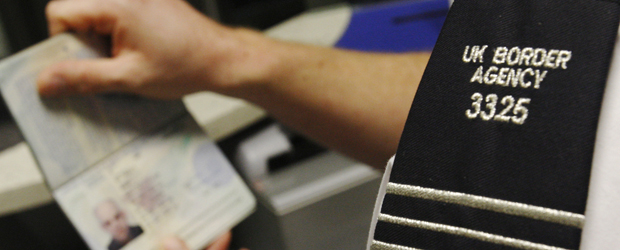Civil servants to man borders during strike
Civil servants are being drafted in to work as border staff during next week’s public sector strike over pensions.

Immigration officials working overseas have also been asked if they are willing to return to the UK for the day of industrial action.
Staff working in embassies and high commissions in India, South Africa and Russia have been contacted about returning to Britain to cover for their absent colleagues.
They have been approached by the UK Border Agency to man border facilities at ports and airports as immigration officials strike on Wednesday over their pensions.
Millions of public sector workers – including as many as 18,000 immigration officials – are expected to strike, raising the potential for long queues at passport control.
If a large-scale strike goes ahead next week, that will have an impact on people and families across the country. Prime minister’s spokesman
A UK Border Agency spokesman said: “The security of the UK border remains our top priority and we explore all options to ensure we minimise any disruption caused by planned union action.”
The spokesman stressed that all staff would be given “the necessary level of training” needed for the tasks they were given.
‘Contingency plans’
Downing Street confirmed that contingency plans were under way to limit the impact of the strike, but declined to discuss details.
Prime Minister David Cameron’s official spokesman said: “We are considering our contingency plans, but we are not providing any details of those.
“The public will expect us, as the government, to do what we can to mitigate the effects of the strikes.
“If a large-scale strike goes ahead next week, that will have an impact on people and families across the country. If schools are shut, that will mean a lot of people who have to stay at home to look after their kids.
“Strikes are not costless. They have an impact and we have to do what we can to mitigate that.”
Net migration figures
The announcement came as new figures showed net migration to Britain hit a record 252 000 last year, despite a coalition pledge to reduce the figure to the “tens of thousands” during the course of the current parliament.
The Office of National Statistics said fewer people were leaving the country for work and more people were coming in to study.
Provisional figures for the year to March 2011 revealed 174 000 people left due to work, the lowest figure for five years.
In the same time, 238 000 people came to study, up by 27 000 in 2009.
Immigration Minister Damian Green insisted that the Government remained committed to reducing net migration to the “tens of thousands” during the course of the current parliament.